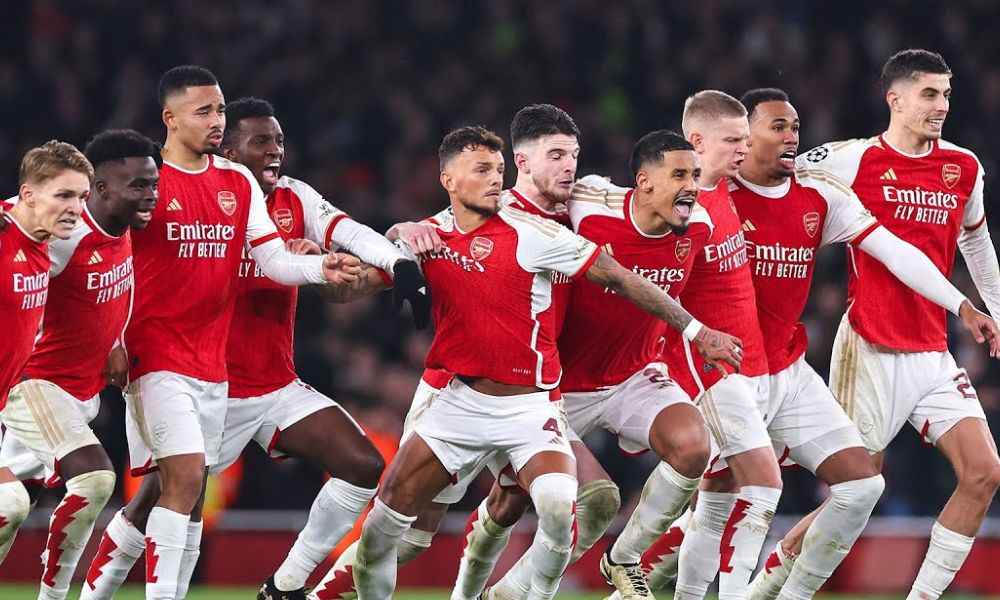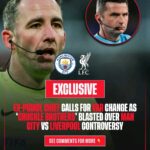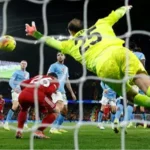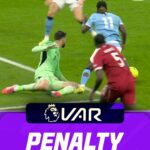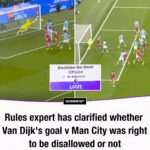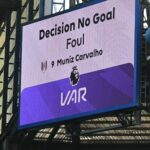Premier League panel decide disallowed Virgil van Dijk goal SHOULD have stood in new twist
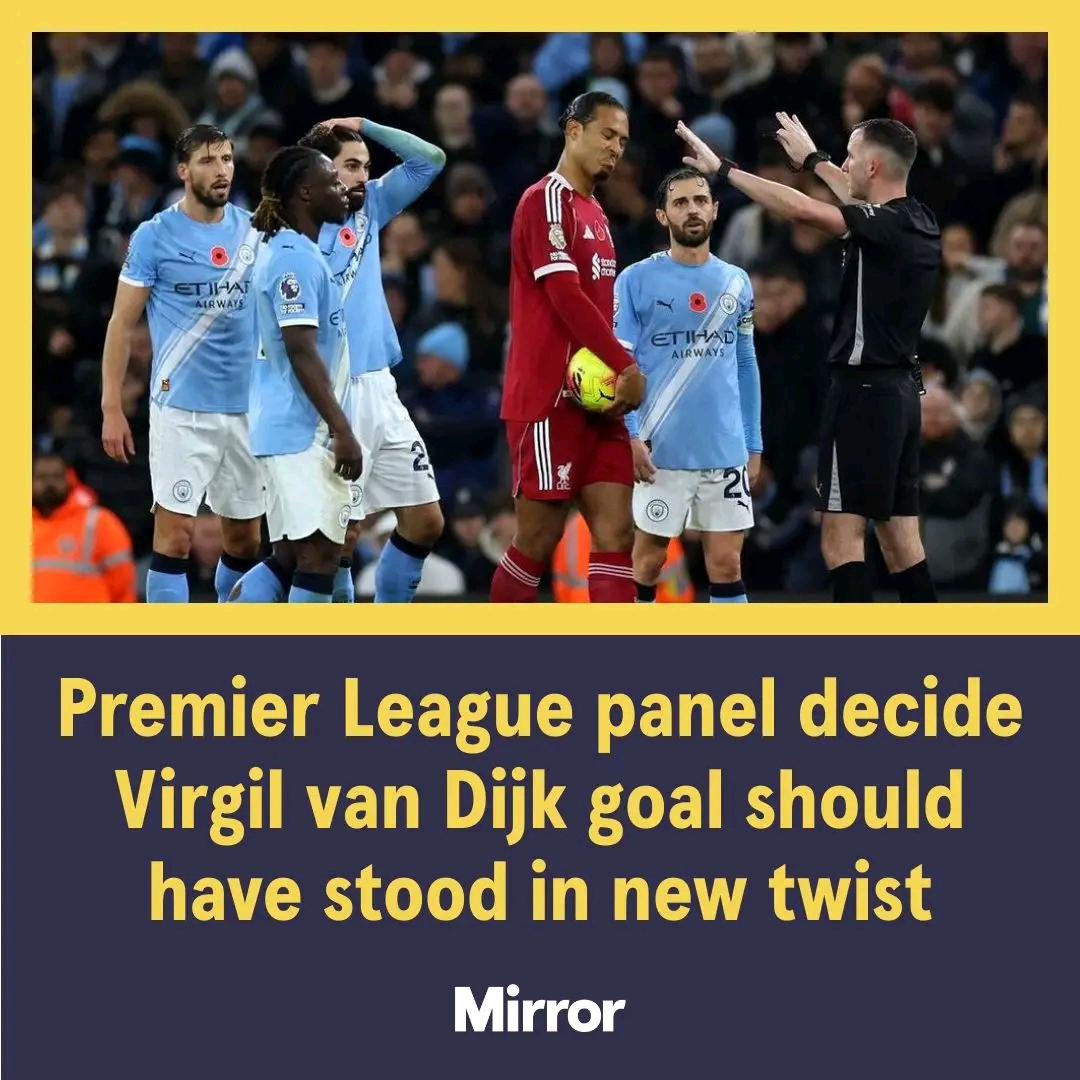
The whole football world was thrown into confusion, anger and deep arguments as another Premier League VAR drama exploded, this time involving Liverpool captain Virgil van Dijk. It was supposed to be a normal top-of-the-table showdown between Manchester City and Liverpool, a match everyone already expected to be fast, intense and full of passion. But nobody expected that one moment, one header, one refereeing decision would turn the whole week upside down. It was not the 3-0 defeat that caused the biggest noise. It was the moment Virgil van Dijk rose like a warrior, met the ball like a king with power and accuracy, forced silence on the Etihad stadium for a second, only for the referee to kill the moment with a flag. Since that second, the football world has not rested.
Liverpool believed they had scored the equaliser that would change the match. City were already leading 1-0, but the Reds were growing stronger. Then the corner came in, Van Dijk attacked it like a lion meeting its prey. The ball flew into the net. For every Liverpool fan, that was football justice. But the assistant referee, Stuart Burt, had his flag up. Chris Kavanagh confirmed the decision. The stadium erupted but not because of celebration. Anger filled the air, questions filled the minds of millions watching on TV and around the world. Why was the goal cancelled? They said Andy Robertson was standing in an offside position. They said he ducked and blocked the line of vision of City’s goalkeeper Gianluigi Donnarumma. Liverpool players surrounded the referee, the captain demanded explanations, the fans were shouting. But the replay decision remained: no goal.
Even inside the stadium, you could feel the mood change instantly. Liverpool felt robbed. City suddenly felt protected by fate. The moment that could bring Liverpool back into the match was gone, and from that point everything collapsed. City scored again, then again, and the score became 3-0. But even after the fourth referee blew the whistle and the players walked off the pitch, football was not finished. Everyone knew that match would continue in arguments, in television studios, in social media, and even inside VAR headquarters. The match was over physically, but the drama was only beginning.
At the centre of the chaos was the Premier League’s **Key Match Incidents panel**, also known as the KMI panel. Five experts: three former players or coaches, one Premier League representative, and one PGMOL representative. They watched and studied the incident. The whole world waited for their verdict. Liverpool fans waited with hope. Manchester City fans waited with certainty. Neutral fans waited for the storm. And when the conclusion finally arrived, the whole Premier League entered another stage of confusion
That one sentence hit the football world like thunder. It started new arguments, new headlines, new questions, and new anger. If the goal should have stood, why was it cancelled? Why did Liverpool not get the equaliser? Why did VAR not intervene? Why is football always ending in controversy? All those questions flew across social media like fire that nobody could put out.
But the panel did not stop there. They added something that confused everyone even more. They said VAR was actually **correct not to overturn the decision**. It was a message that felt like the Premier League was arguing with itself. The goal was legal, but still correctly cancelled. Liverpool were right, but the officials were also right. It was like pain without healing. Like bad news with no justice.
Liverpool manager Arne Slot could not hold his anger. After the match, he faced the microphones, stared at the cameras and spoke like a man who felt betrayed by the system. He said the whole world could see it was the wrong decision. He said Andy Robertson did not disturb Donnarumma in any way. He said the goalkeeper saw everything clearly and still had enough time to react. Slot did not shout, but the pain in his voice was louder than shouting. He looked like a man who wanted fairness, not excuses. It was the first big VAR frustration of his Liverpool career, and it cut deep.
Inside the dressing room, the emotions were even tougher. Robertson himself felt targeted. Teammates gathered around him, telling him it was not his fault. Van Dijk sat down silently for minutes, boiling with emotions. When he finally spoke, the words were filled with disappointment. He said the team was robbed. He said the moment was too big for that kind of mistake. He said Liverpool deserved football justice. Players looked at each other and nobody knew what was happening to the Premier League.
Liverpool did not stop there. They contacted PGMOL boss Howard Webb, demanding clarity. They wanted to understand how a correct goal could be simultaneously declared correctly cancelled. Webb defended the decision, saying it was not unreasonable for the officials to decide that Robertson affected Donnarumma’s line of vision. But even those words sounded like soft cement trying to cover broken glass. When something hurts in the heart of football, no explanation is enough.
The VAR audio later got released publicly. Everyone listened to every second of it. The assistant referee’s voice repeated that Robertson was directly in front of the keeper and ducked, affecting vision. Kavanagh confirmed offside. VAR Michael Oliver then checked and agreed with the on-field decision. Even after listening to everything, football fans did not find peace. What some people heard was a correct technical conversation. What others heard was a team being denied a fair goal.
Meanwhile social media was exploding. Some fans said football was getting too complicated. Others said “clear and obvious” has lost its meaning. Some blamed VAR. Some blamed referees. Some blamed the football rules. Others said there is double standards in the Premier League. The media built new headlines every hour. Pundits like Jamie Carragher, Alan Shearer, Wayne Rooney, Gary Neville, and even retired referees brought their opinions. And every opinion created more arguments instead of answers.
Inside Liverpool’s camp, the story became even more emotional. This was not only about one disallowed goal. It was about the title race. It was about points. It was about momentum. It was about trust in the system. The players knew the match could have changed. The fans knew that moment broke their spirit. The feeling of betrayal was everywhere. But football never gives time to heal. The next match is already waiting. The Premier League is heartless. It doesn’t stop just because someone is hurting.
Even rival fans began to join the conversation. Some said Liverpool supporters were crying too much. Some said the team should focus on performance, not excuses. Others agreed that the decision was unfair. The whole football world became divided. It was not City versus Liverpool anymore. It became everyone versus everyone.
Yet in the heart of all this chaos stood one man: Virgil van Dijk. The captain who thought he had scored the goal that could change the match. The leader who felt disappointment like a weight on his shoulders. The man who stood in front of the world and demanded fairness. He didn’t hide. He spoke for his teammates, for the fans, for every football lover who wants justice on the pitch. You could see the pain in his eyes, the frustration in his voice, the fire in his spirit. He did not insult anyone. He did not disrespect football. He simply stood up for what he believed was right.
And maybe that is why the panel’s verdict touched the world so strongly. It was like the universe telling Liverpool: “Yes, you were right… but nothing will change.” No replay, no added goal, no correction, no extra point. Just emotional damage. Just painful truth.
The Premier League is still moving forward, but the sting remains. The players will step on the pitch again, but they will not forget. The fans will sing again, but they will not forget. When Liverpool meets Manchester City next time, the energy will not be normal. There will be fire. There will be revenge in the air. The memory of that cancelled goal will be alive. That is what football does. It gives pain today and turns it into motivation tomorrow.
Maybe one day this moment will be the story that drives Liverpool to win something bigger. Maybe the same pain that hurts them today will make them unstoppable later. Because football has a strange way of turning heartbreak into history. For now, the storm has not ended. The Premier League continues. The debates continue. The anger continues. The questions continue.
But deep inside every Liverpool supporter, every Liverpool player and every Liverpool coach, there is a simple belief that will never go away:
